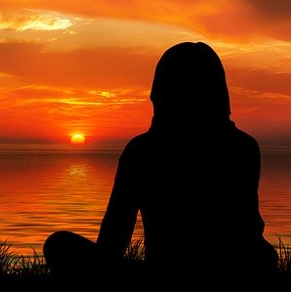North Korean Suppression of Religion Bad and Getting Worse, U.S. Panel Says
- Lookout

- Aug 20, 2021
- 2 min read
August 20, 2021
(WT) A federal religious liberty panel said Wednesday that North Korea‘s government “poses an acute challenge” to religious practice in the country, with an organized and intensifying campaign of harassment against an expanding array of faiths.
“Violations of this right in North Korea are ongoing, egregious, and systematic, and they are perpetrated and overseen by the active mobilization of organs” of that government, the U.S. Commission on International Religious Freedom (USCIRF) said in the new report, which noted that pandemic-related border shutdowns have only increased the isolation of North Korea‘s still-surviving religious communities.
While Christianity has long been the target of North Korean repression over the past 70 years, experts now say shamanic religion and fortune-telling have been under increased threat since 2018 at the direction of Kim Jong-un, the Communist nation’s dictatorial ruler.
USCIRF officials released a 32-page document outlining brutal repression of religious belief by the Communist regime. The report is based on interviews with those who escaped North Korea, with a majority of those escapes taking place in 2019.
“Religious freedom is indeed nonexistent in North Korea,” declared USCIRF Commissioner Frederick A. Davie, a senior strategic adviser to the president of Union Theological Seminary, who spoke at a briefing introducing the report.
“Religious adherents face severe persecution for practicing and holding their faith and beliefs,” he added.
“The North Korean government exerts absolute control over religion and denies the North Korean people freedom of religion from birth,” noted USCIRF commissioner James W. Carr, a retired administrator at Harding University. “The government severely punishes any forms of deviation from its official ideology and policy with Christians and adherents of shamanism, particularly targeted for the persecution.”
Six Christians were executed in a southern province in 2015, with as many as 40 others sentenced to life at that time, according to Suyeon Yoo, co-director of human rights organization Korea Future, which produced the report. The system “relies on fear of the state, rather than a faith in [Mr. Kim].” She noted that where North Korea had an estimated 250,000 Christians in 1950, that number has dwindled to a few thousand today due to the intense persecution.
Ms. Yoo said COVID-19 lockdowns along the China-North Korea border have stopped any delivery of Christian materials from pastors working along the divide, and restricted contact between those clerics and North Korean believers.
Chinese authorities who return captured defectors, setting them up for additional persecution when back in North Korea, one expert said. Many Christian refugees in China are forcibly abducted and returned to North Korea by agents of Pyongyang’s Ministry of State Security.
Said Inje Hwang, a Korea Future investigator who co-authored the USCIRF report, “One Christian victim was nearly beaten to death and left on the floor to be seen by other prisoners.” He added that Christianity is persecuted because of its connections to the West and its emphasis on evangelism. Believers get “severe persecution” within the system, facing either summary execution or a life sentence to a prison camp, Mr. Hwang said.
Story by Mark A. Kellner for The Washington Times




Comments